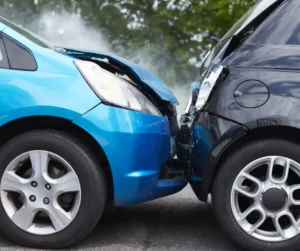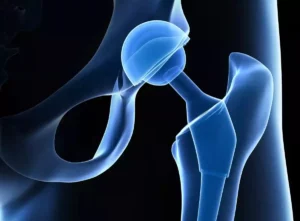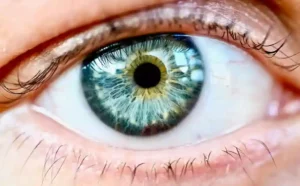From car accidents to sports incidents to a fall in your home, there are many events that can cause you to suffer a traumatic brain injury (TBI). TBIs are serious injuries, the effects of which can be long-lasting. Anyone can suffer a TBI, but there are certain risk factors that make certain populations more likely to sustain these types of injuries.
Age and Gender
The age groups most at risk for a TBI are children ages 5 and under, young adults ages 15-24, and older ages 75 and older. Young children have a higher risk of head injuries because they have not yet honed their coordination skills, and are also more likely to do risky things like climb on furniture. The 15-24 age group is also more likely to engage in risky behavior than their older peers. Falls are the most common cause of TBIs in older adults. In fact, falls are responsible for 60% of TBIs in older adults, compared with 33% for the general population. And while older adults only account for 10% of TBI-related emergency room visits, they account for 50% of deaths related to TBIs. Men are twice as at risk as women for suffering a TBI. This is probably due to men’s higher propensity to engage in risky behavior, as well as their participation in high-impact sports.
Alcohol
Alcohol also greatly increases the likelihood of a brain injury. In fact, alcohol use is associated with roughly 50% of all brain injuries. Alcohol slows down a person’s reflexes and and impairs judgment, which leads to riskier behaviors. TBIs related to alcohol are often the result of car accidents or falls.
Playing Sports
We have previously reported on the risk of chronic traumatic encephalopathy (CTE) associated with playing football. But football is not the only sport that can increase your risk of brain injury. Other contact sports, such as soccer, basketball and hockey, also increase the risk of TBI.
How to Reduce Your Risk of TBI
- Be cautious when consuming alcohol. If you are going somewhere, always have a designated driver.
- Always wear a seatbelt in the car, to prevent being ejected in the event of a crash. Likewise, always wear a helmet when riding a motorcycle or bicycle.
- Keep living areas safe for the senior citizens in your life. You can do this by removing any tripping hazards, like throw rugs, putting non-slip mats in the bathtub and shower floors, and installing grab bars near the toilet and bath. You can also install handrails along the stairway and ensure the lighting in the home is adequate.
- Protect young children by ensuring they are in the correct child safety seat while in the car. Children under the age of 2 should be kept in a rear-facing car seat, and children should be in a booster seat until age 9, once they outgrow their forward-facing car seat.
- Be thoughtful about the sports you allow your child to play. No-contact sports are the safest for young children. If your child does play a contact sport, make sure the referees are enforcing rules against rough play. If your child suffers a blow to the head, make sure they are taken out of the game to recover, and have them evaluated by a doctor if necessary.
Should You Seek Medical Treatment After a Head Injury?
A simple bump on the head might not require immediate medical attention, but any significant blow to the head should be evaluated by a doctor as soon as possible. A doctor will be able to diagnose a concussion or TBI, and prescribe the proper amount of rest and medication you will need to recover. Waiting too long to be seen after a head injury can add time to your recovery and even cause long-lasting problems.
Symptoms of a TBI you should pay attention to after a head injury include:
- Blacking out for any amount of time
- Headaches that do not improve or actually worsen
- Nausea
- Confusion
- Loss of balance
- Sudden mood changes
- Sensitivity to light or sound
- Seizures or convulsions
If you suffered a traumatic brain injury due to someone else’s negligence, such as a car accident or slip and fall on private property, you might be entitled to compensation for your injuries. Consult with a personal injury attorney to learn about your options.
“There is no way to completely prevent a TBI—accidents happen to everyone. However, taking these precautions can help reduce your risk of a brain injury,” said Attorney Walter Clark, founder of Walter Clark Legal Group.
Our firm has been handling personal injury cases throughout the California Low Desert and High Desert communities for over 30 years. With a 95% success rate, the California personal injury attorneys at Walter Clark Legal Group will fight to hold those responsible for your loss accountable and win compensation to cover medical bills, lost wages, and pain and suffering. If you have been injured and want to discuss your legal options, contact us today for a free consultation with an experienced personal injury lawyer. We have offices in Indio, Rancho Mirage, Victorville, and Yucca Valley and represent clients through the entire California Low Desert and High Desert communities.
DISCLAIMER: The Walter Clark Legal Group blog is intended for general information purposes only and is not intended as legal or medical advice. References to laws are based on general legal practices and vary by location. Information reported comes from secondary news sources. We do handle these types of cases, but whether or not the individuals and/or loved ones involved in these accidents choose to be represented by a law firm is a personal choice we respect. Should you find any of the information incorrect, we welcome you to contact us with corrections.
- What To Do If You Have Been Injured At A Concert In California? Mar 27,2024
- Walter Clark Legal Group Reimburses Thanksgiving Ride Fares Nov 14,2023
- Walter Clark Legal Group Donates Backpacks to Booker T. Washington Elementary School Aug 22,2023
- Walter Clark Legal Group Donates Backpacks to Underserved Students Aug 22,2023
- Walter Clark Legal Group Reimburses Labor Day Ride Fares Aug 21,2023
- 2023 Safe Ride Home Program Jun 21,2023





















